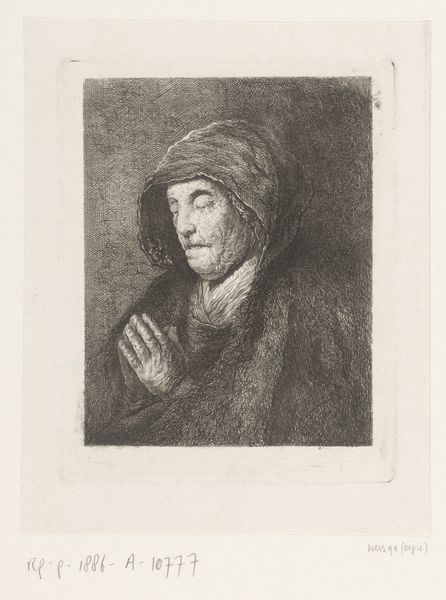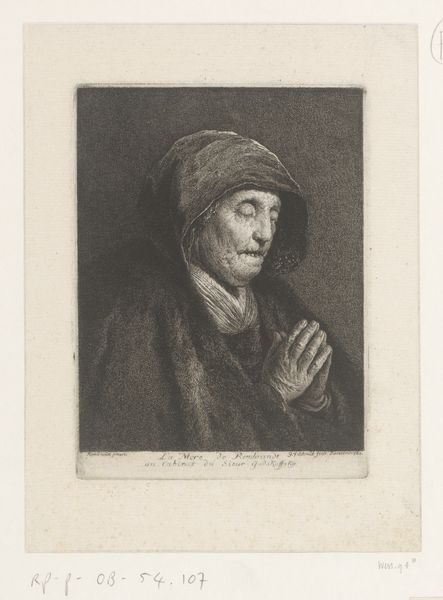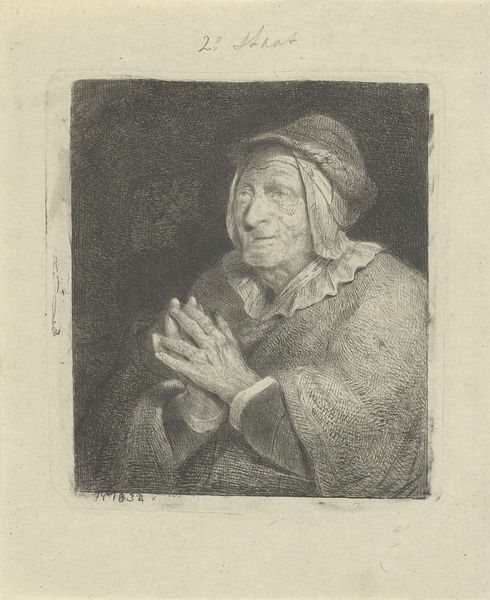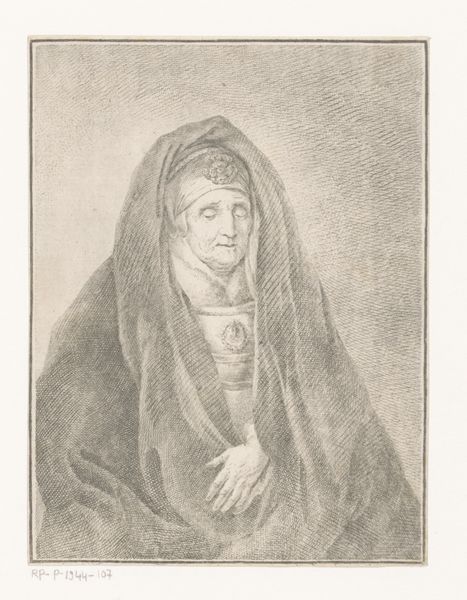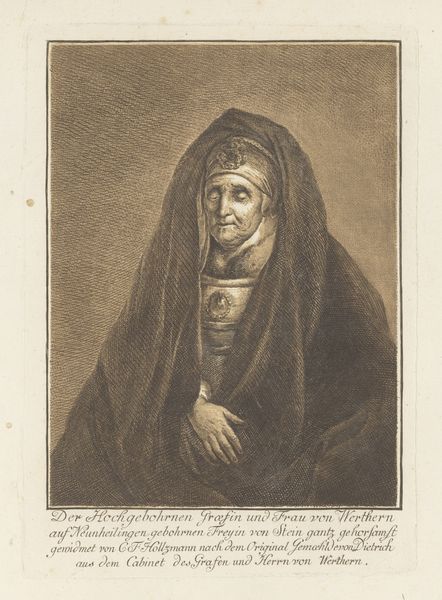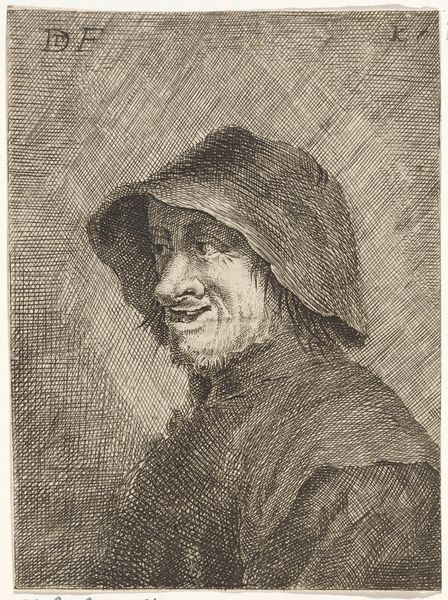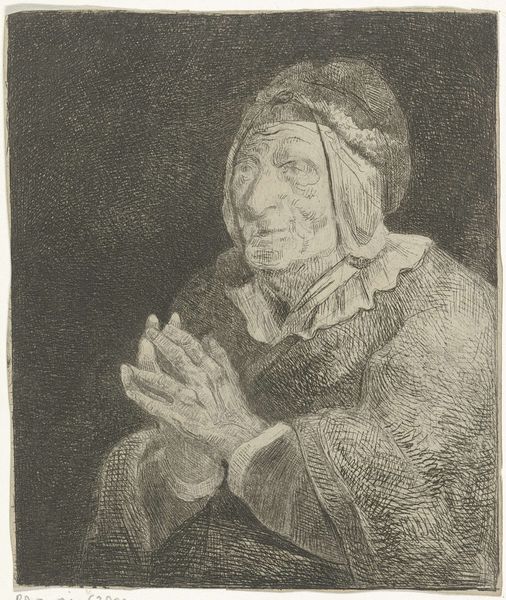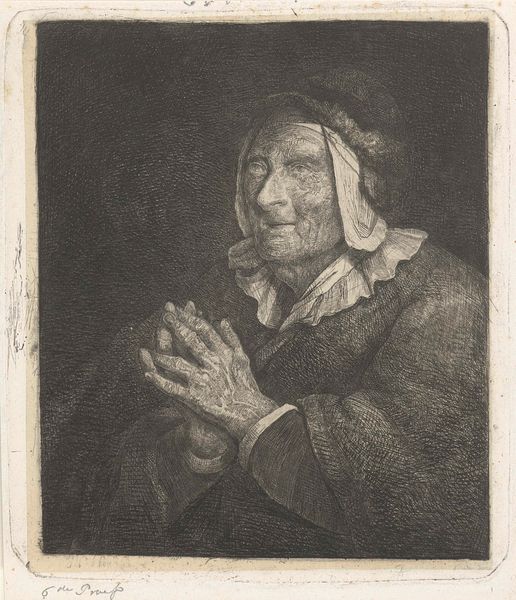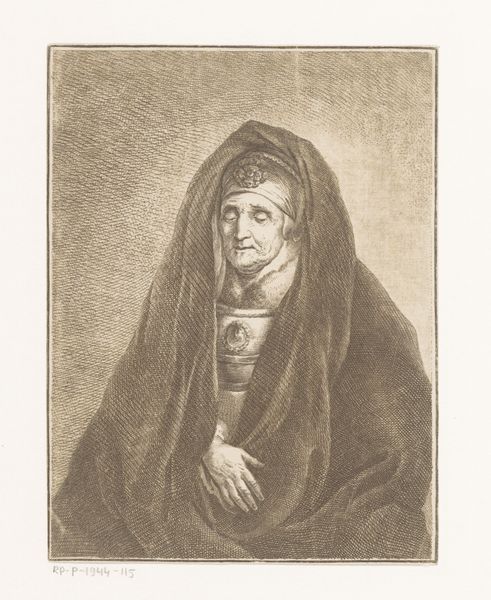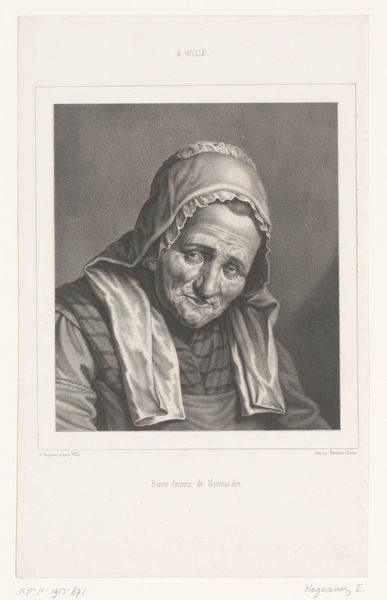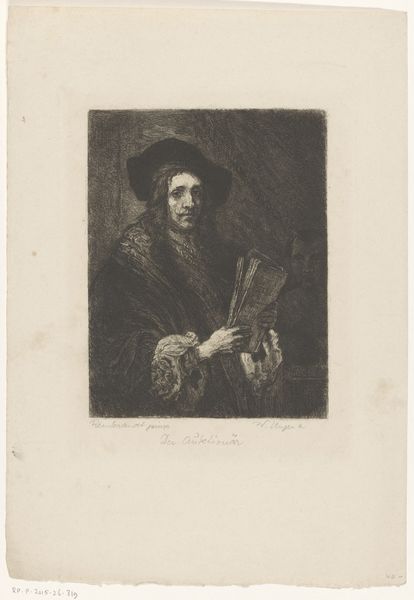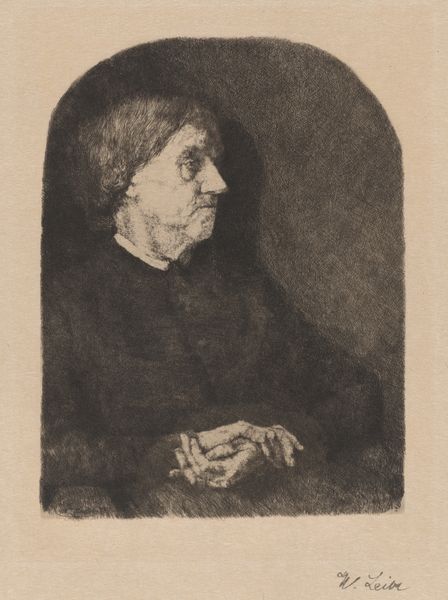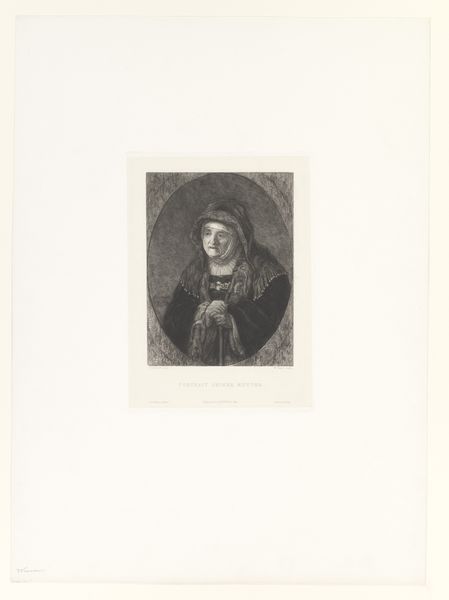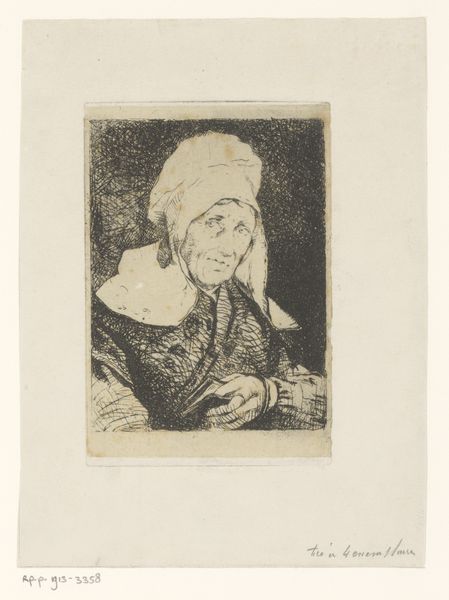
drawing, print, etching
#
portrait
#
pencil drawn
#
drawing
#
facial expression drawing
#
light pencil work
# print
#
etching
#
pencil sketch
#
old engraving style
#
figuration
#
portrait reference
#
pencil drawing
#
limited contrast and shading
#
portrait drawing
#
pencil work
#
northern-renaissance
#
realism
Dimensions: height 139 mm, width 118 mm
Copyright: Rijks Museum: Open Domain
Curator: Here we have “Biddende oude vrouw (Rembrandt's moeder)", which translates to "Praying Old Woman (Rembrandt's Mother)," an etching dating roughly from 1773 to 1840. It depicts, as the title suggests, an elderly woman in prayer. Editor: She looks… profoundly tired. Her eyes are closed, and every line in her face seems etched with a story of hardship. But there's a deep sense of peace radiating from her, too. A quiet surrender, perhaps? Curator: Precisely. The use of etching allows for incredible detail, notice how each line contributes to the overall texture, conveying both the weight of years and a certain quiet dignity. Portraits like this provided an important form of cultural representation and social validation. Editor: I wonder about the social aspect here. I mean, imagining your mother immortalized in print is intense. Did he intend for this to be a personal homage or something more public-facing? Because those aren't always the same thing, you know? The politics of memory… Curator: A bit of both, probably! We have to remember portraiture served multiple functions back then, even intimate portrayals became social statements in print. The circulation of images helped define notions of respect, piety and virtue in the home. I like to think of it as offering us insight into family values back then. Editor: Right, so it's about more than just honoring Mom, it's about the artist performing an identity through this piece, participating in certain values and ideals that circulated at that time. Makes you think, huh? It makes the image more relevant and complicated. What's "intimate" if everyone sees it? Curator: Exactly, images create dialogue. Even if those meanings shift over time. Her stillness seems a universal visual representation that transcends time and background. But these visual representations often fall short on an intimate scale. Editor: And maybe that is why it is relevant still today. It's just that gap between inner and outer life that all of us can recognize… and which sometimes makes one a bit prayerful, maybe? Well, this print certainly gave me a bit to think about. Curator: As it should. It’s what great art achieves, bridging centuries to make us pause.
Comments
No comments
Be the first to comment and join the conversation on the ultimate creative platform.
